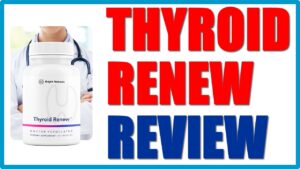
You might think you know everything about gut health, but many common beliefs are misleading. For instance, you may believe that probiotics alone can solve all digestive issues or that detox diets can effectively cleanse your gut. These myths can actually hinder your well-being. Understanding the truth behind these misconceptions is crucial for your health journey. What if the answers lie beyond what you’ve been told?
Probiotics Are a Cure-All for Digestive Issues
While it’s easy to believe that probiotics can solve all your digestive problems, the reality is more complex. Probiotics aren’t a one-size-fits-all solution. You might find that some strains work well for you, while others don’t have any noticeable effect.
Factors like your unique gut microbiome, diet, and lifestyle play significant roles in how effectively probiotics can help. Additionally, they can’t address underlying issues such as food intolerances, stress, or infections. Relying solely on probiotics might lead you to overlook these important factors.
It’s essential to approach gut health holistically by combining probiotics with a balanced diet, regular exercise, and stress management. So, while probiotics can be beneficial, they’re not a magic fix for every digestive issue you face.
Detox Diets Can Cleanse Your Gut
Many people believe that detox diets can effectively cleanse their gut, but the truth is more nuanced. These diets often promise quick fixes through extreme food restrictions, juices, or supplements.
However, your body has its own natural detoxifying mechanisms in the liver, kidneys, and intestines. Instead of relying on fad diets, focus on maintaining a balanced diet rich in fiber, fruits, vegetables, and whole grains. This approach supports your gut health more effectively than any short-term detox.
Moreover, some detox diets can lead to nutrient deficiencies and digestive issues. So, ditch the idea that you need to “cleanse” your gut. Instead, adopt sustainable eating habits that promote long-term well-being and digestive balance.
All Fermented Foods Are Beneficial
Not all fermented foods are created equal, and assuming they’re all beneficial can be misleading. While many fermented foods, like yogurt and kimchi, offer probiotics that promote gut health, others may not provide the same advantages.
For instance, some commercially produced items are high in sugar or additives, which can outweigh their benefits. You might also encounter fermented foods that lack live cultures due to pasteurization processes.
It’s essential to read labels and choose options that are minimally processed and rich in probiotics. Additionally, individual responses to fermented foods can vary, so what works for one person may not work for you.
Balancing your diet with a variety of whole foods is crucial for optimal gut health.
You Need to Eliminate Gluten for Gut Health
If you believe eliminating gluten is essential for gut health, you might want to reconsider that notion. For most people, gluten isn’t a problem. It’s only harmful for those with celiac disease or gluten sensitivity, who experience digestive issues after consuming it.
For the average person, whole grains containing gluten can actually contribute beneficial fiber and nutrients, supporting overall gut health. Cutting out gluten unnecessarily can limit your diet and deprive you of essential vitamins.
Instead of focusing on gluten elimination, consider a balanced approach to your meals. Prioritize diverse, whole foods, and listen to your body’s reactions. It’s about finding what works for you, rather than following a trend that may not offer real benefits.
High-Fiber Diets Are Always the Best Choice
While a high-fiber diet can offer numerous benefits, it isn’t always the best choice for everyone. Some people may experience digestive discomfort, such as bloating or gas, when increasing fiber intake too quickly.
If you have certain gastrointestinal conditions, like irritable bowel syndrome (IBS), a low-FODMAP or lower-fiber diet might be more suitable. It’s essential to listen to your body and adjust your fiber consumption accordingly.
Not everyone needs the same amount of fiber, so personalizing your diet is key. Focus on a balanced approach that includes a variety of nutrients.
Gut Health Only Affects Digestion
Gut health impacts much more than just digestion; it plays a crucial role in your overall well-being. Your gut isn’t just a processing center for food; it’s a powerhouse that influences your immune system, mental health, and even your skin.
When your gut flora is balanced, you’re likely to experience improved mood and reduced anxiety, thanks to the gut-brain connection. Additionally, a healthy gut can help prevent chronic diseases and support better nutrient absorption.
If your gut isn’t functioning optimally, you might notice fatigue, skin issues, or frequent illnesses. So, taking care of your gut is essential for your physical and mental health, making it vital to look beyond digestion when considering gut health.
You Can “Reset” Your Gut With Short-Term Changes
Many people believe they can “reset” their gut health with quick fixes, but this isn’t quite accurate. While short-term changes like a detox or restrictive diet might seem appealing, they often don’t lead to lasting benefits.
Your gut health isn’t just about what you eat for a few days; it’s influenced by your overall lifestyle, including long-term dietary habits, stress levels, and sleep quality. Relying on temporary measures can disrupt your gut microbiome rather than improve it.
Instead of seeking a “reset,” focus on sustainable, balanced changes. Incorporate a variety of whole foods, prioritize fiber, and maintain hydration.
Building healthy habits takes time, but it’s the only way to truly support your gut health for the long haul.
Supplements Are More Effective Than Whole Foods
Although you might think supplements offer a quick and easy solution for improving your gut health, whole foods often provide more comprehensive benefits.
Whole foods are packed with essential nutrients, fiber, and probiotics that work synergistically to support digestion and overall gut function. When you consume a variety of fruits, vegetables, whole grains, and fermented foods, you’re not just getting isolated nutrients; you’re also nurturing a diverse microbiome.
Supplements, on the other hand, might lack these complexities and can lead to imbalances if taken excessively. Plus, whole foods promote satiety and can prevent overeating.
Conclusion
In conclusion, it’s crucial to challenge these gut health myths to improve your overall well-being. Remember, probiotics aren’t a one-size-fits-all solution, and detox diets won’t magically cleanse your gut. Emphasize a balanced diet and consider the impact of stress on your gut health. Instead of seeking quick fixes, focus on sustainable lifestyle changes. By understanding the truth about gut health, you can make informed choices that truly benefit your digestion, mood, and overall health.





